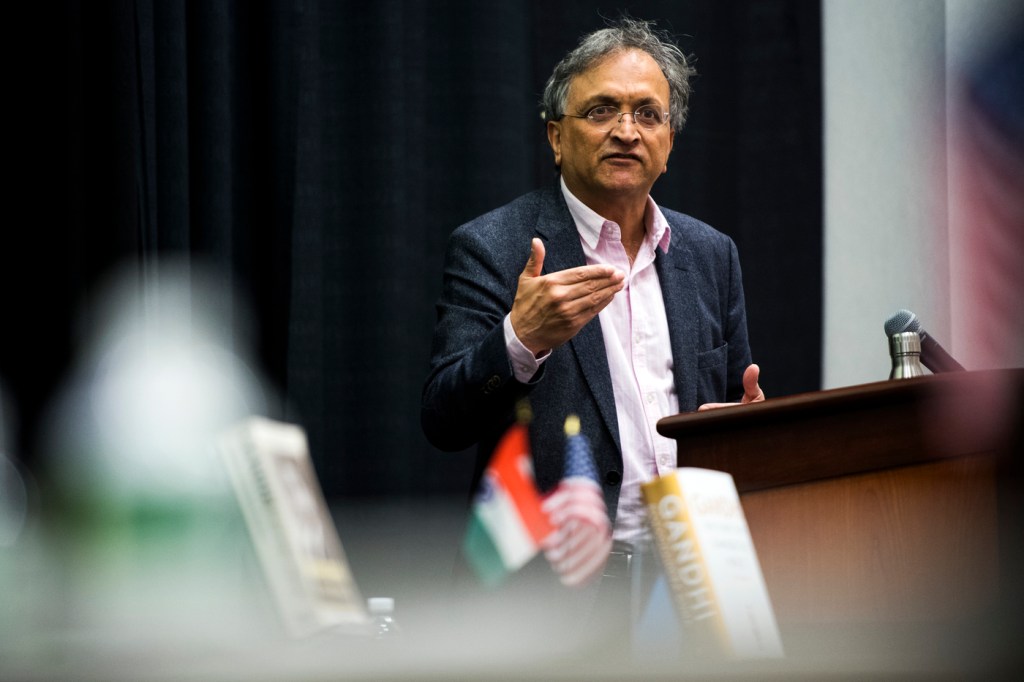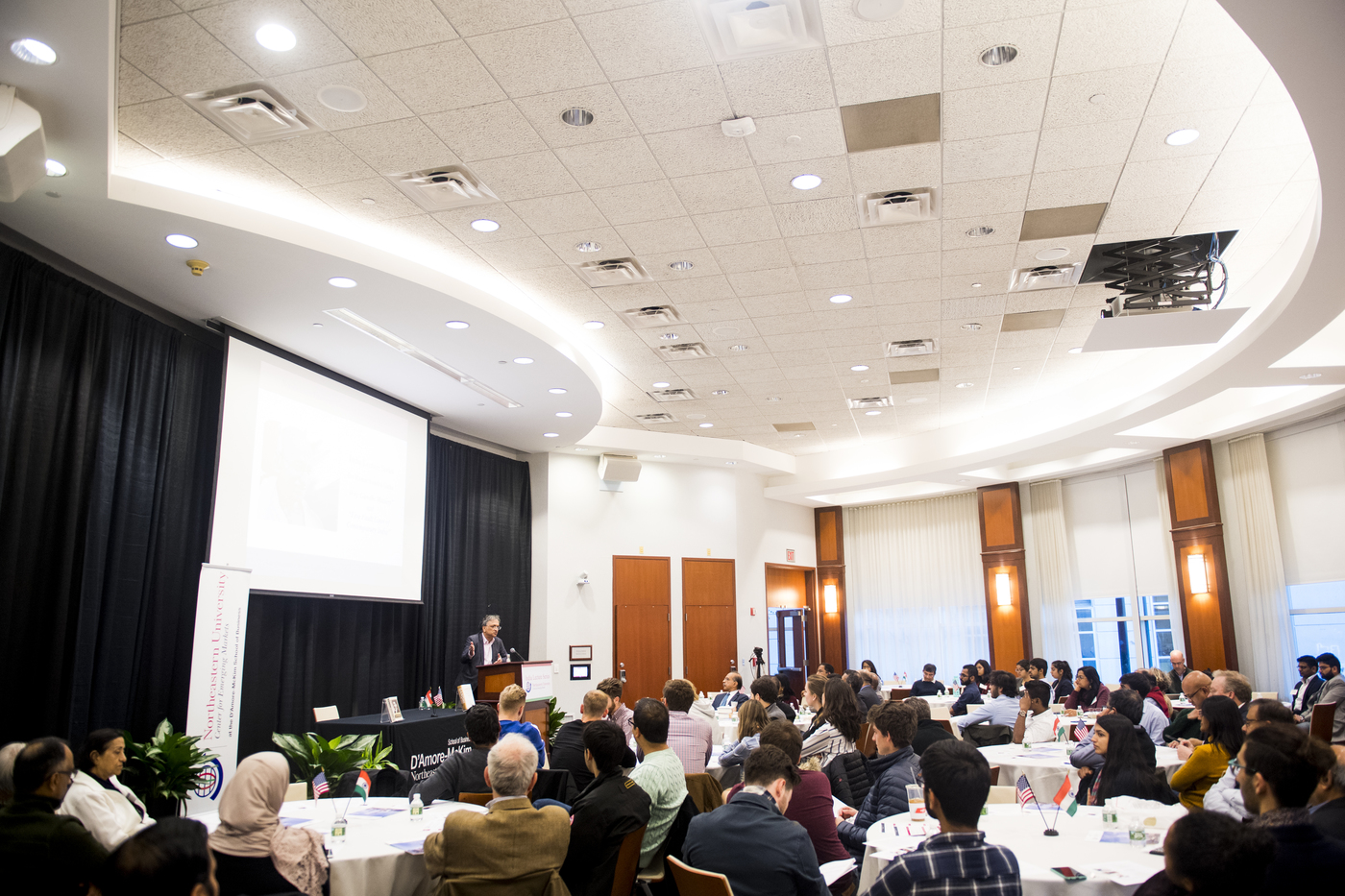Gandhi was born 149 years ago, and he is still missed

Every morning at 5, Mahatma Gandhi would begin his day with a stroll. By the 1930s he was arguably the most famous person around the world, and yet he did not express the powers of his influence by walking alone.
“Compare him with Churchill or de Gaulle or Roosevelt or Stalin: These other people, you couldn’t just go and talk with them,” said author Ramachandra Guha, in references to Gandhi’s contemporary leaders of Britain, France, the United States, and the Soviet Union. “But anyone could walk into Gandhi’s Ashram, and whoever came could walk alongside him. Gandhi would patiently entertain any question from anyone in India.”
Guha, an award-winning biographer and historian, brought the Indian leader to life Thursday night at Northeastern in a lecture hosted by the university’s Center for Emerging Markets, which is directed by Distinguished Professor Ravi Ramamurti. The presentation was based on his newly-released biography, Gandhi: The years that changed the world (1914-1948), which tells the story of Gandhi’s three-decade effort to liberate India from British rule while seeking to unify his polarized nation.
Guha shared intimate details with casual generosity, which evoked a leader who expressed his strength through humility, and who set a lasting standard of moral authority in the absence of anything like the global information technology of today.
Gandhi’s vision was expressed by “the force of example,” Guha said. When he called for his followers to put themselves in harm’s way, he himself submitted to arrest and incarceration. He endured 24 extended fasts to draw attention to the political, religious, and social ills he was dedicated to resolving in India. Every Monday, he would observe a voluntary day of silence.

Photo by Adam Glanzman/Northeastern University
Gandhi was an internationalist whose belief in nonviolent resistance would be studied and embraced on the far side of the world a half-century later by Martin Luther King Jr., whose Boston-based papers Guha had studied earlier on Thursday. Gandhi was trained as a lawyer in London. The defining idea of resisting injustice without the use of force was proposed for the first time in public by Gandhi while he was a young expatriate lawyer working in Johannesburg, South Africa, on Sept. 11, 1906.
He expressed a vision of pluralism across all planes of Indian society. He urged for India to maintain its rich multi-lingual tradition. He envisioned the potential for a better life for Indians, even as he spurned luxuries for himself. He was forever searching for young, talented leaders, whom he would encourage, nurture, and set free to pursue their own visions for India’s future.
By no means was Gandhi perfect.
“He was an indifferent husband, and he could be an awful father,” Guha said. And yet, he added, “A little-known aspect of Gandhi’s life is that he did a great deal to bring women into politics.”
He was a “precocious” environmentalist whose desire for recycling and other means of conservation were ahead of their time. And yet he was open to hearing and examining the opposing points of view, including those of the British colonizers as well as the enforcers of India’s caste system. Gandhi, who insisted on equal rights for all religions, was murdered in 1948, at age 78, by a religious fanatic.
The 1947 liberation and partition by Britain, resulting in the creation of India and Pakistan, has led to difficulties that Gandhi could not have envisioned, as detailed frankly and passionately by Guha in his second lecture, “Five fault lines of contemporary India.” In the midst of its eighth decade of independence, India has already endured five defined periods of crisis. In listing them one by one, Guha noted that each extended time of grave doubt had come and gone.
“We can come out of it,” he said of the current moment. “We can.”






